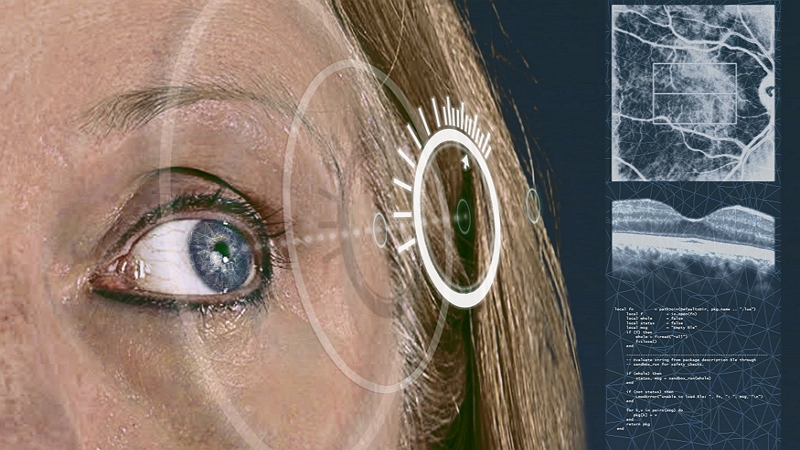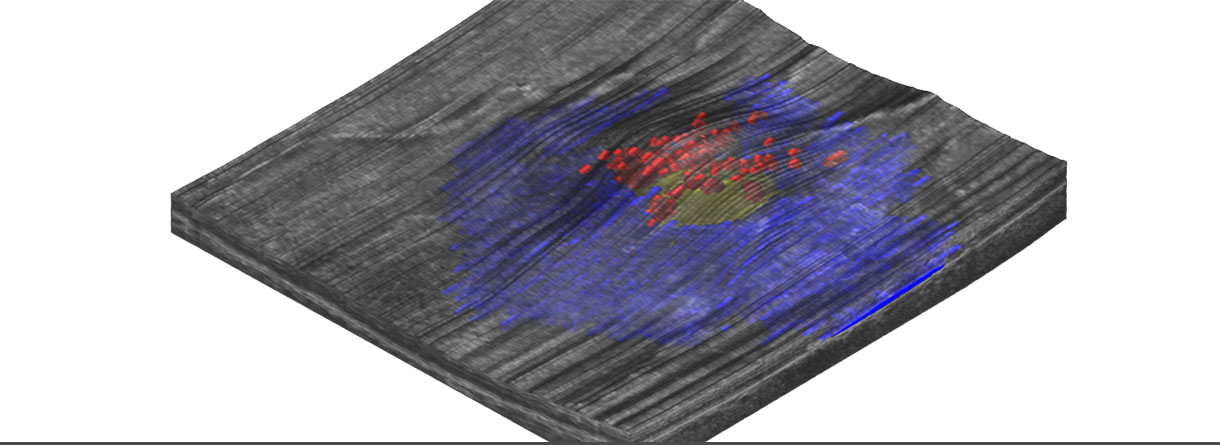Career
We welcome applications for:

PhD student in Deep Learning for Medical Image Analysis
We are offering a PhD position in the domain of Machine Learning for Medical Imaging. As part of our initiative on Artificial Intelligence (AI) in Retina, the focus of the research is on building robust, reliable, and interpretable characterization of retinal pathology from 3D optical coherence tomography (OCT) images of the human eye to enable Trustworthy AI-based clinical decision support tools for retinal experts.
Research topics will be in one of the following areas: Self-supervised learning and foundation models, Uncertainty quantification and Bayesian deep learning, and Domain adaptation. The successful candidate will be immersed in an interdisciplinary environment working closely with a team of computer scientists, software engineers, and medical doctors in the fascinating field of AI in Retina. The output will have a real-world impact on the clinical management of patients suffering from retinal diseases, a leading cause of blindness today.
Representative examples of our prior work:
https://arxiv.org/abs/2307.03008, https://arxiv.org/abs/2207.00458,
https://arxiv.org/abs/2308.09331v2, https://arxiv.org/abs/2211.04234
Your qualifications
- MSc degree or equivalent in AI, computer science, biomedical engineering, physics or similar
- Excellent analytical, interpersonal, as well as written and oral communication skills in English.
- Strong programming (Python, PyTorch, JAX, TensorFlow, etc.) and applied math skills
- Experience in machine/deep learning and statistics. Experience in computer vision, (bio)medical imaging is desirable but not a requirement.
- Enthusiasm about the applications of AI in medicine
Our offer
- You will be immersed into an interdisciplinary environment, working closely with a team of computer scientists, software engineers and medical experts.
- You will have the opportunity to work in the promising and currently exploding fields of deep learning, data science and medical image analysis.
- Access to extremely large sets of curated and annotated ophthalmic images.
- The lab is well-equipped with a dedicated high-performance computing cluster containing the latest generation GPUs.
- The group keeps close collaboration with several high-performance academic research institutions, as well as partnership with imaging device and pharmaceutical companies.
The OPTIMA lab is a world-leading group in AI for retinal image analysis, based at the Medical University of Vienna, which is one of Europe’s premiere institutions for biomedical and clinical research. The lab is located at the heart of historic Vienna, which has been named the World’s Most Liveable City numerous times in a row.
Application
Please apply by sending an application to hrvoje.bogunovic (at) meduniwien.ac.at containing:
- Cover letter indicating your interests and research experience
- CV
- Transcript of academic records
- Contact information of two references
Postdoc in Deep Learning for Retinal Image Analysis (full time)
We are seeking exceptionally motivated postdocs to strengthen our interdisciplinary team working on machine learning for medical image analysis. As part of a multidisciplinary and multinational project PINNACLE funded by Wellcome Trust, you will be leading exciting research, at the interface of machine learning and medicine. The focus is on automated characterization of retinal pathology from 3D optical coherence tomography (OCT) images of human retina, and on learning to predict patient-specific disease progression from a very large-scale curated longitudinal imaging data and electronic health records.
The successful candidate will be immersed into an interdisciplinary environment working closely with a team of computer scientists, software engineers and medical doctors. Advancements will have a real world impact on clinical management of patients suffering from age-related macular degeneration (AMD), a leading cause of blindness today.
Your profile:
- PhD degree (or soon to be completed) in a relevant discipline
- Strong background in machine and deep learning, medical image analysis or computer vision
- Ability to organize his/her work with minimal supervision and to meet deadlines of the project
- Relevant publication record in the field
- Excellent programming skills (Python, Julia, PyTorch, etc.)
- Excellent analytical, interpersonal, as well as written and oral communication skills in English are essential
Our offer:
- You will be immersed into an interdisciplinary environment, working closely with a team of computer scientists, software engineers and medical experts.
- You will have the opportunity to work in the promising and currently exploding fields of deep learning, data science and medical image analysis.
- Access to extremely large sets of curated and annotated ophthalmic images.
- The lab is well-equipped with a dedicated high-performance computing cluster containing the latest generation GPUs.
- The group keeps close collaboration with several high-performance academic research institutions, as well as partnership with imaging device and pharmaceutical companies.
The OPTIMA lab is a world-leading group in ophthalmic image analysis part of the Medical University of Vienna which is an international center of excellence and one of the largest research institutions in Europe located at the heart of historic Vienna. Vienna is regularly declared the world’s most liveable city.
Application:
Please apply by sending an application to: hrvoje.bogunovic (at) meduniwien.ac.at
containing:
- Cover letter, with a summary of your scientific activities and your motivations
- CV
- Contact information of three references
Master Thesis at OPTIMA
A number of thesis topics are available to students interested in the writing of a master thesis with us.
We offer:
- Wide range of topics suited to different prior knowledge, from practical oriented to deep-dive analyses in:
- Image segmentation and object detection
- Automated diagnosis from OCT and image quality assessment
- Multimodal retinal image registration
- Generative modeling and synthetic data
- Close supervision and tight integration with the international research group where MSc students work closely with PhD students and PostDocs.
- Access to a large set of longitudinal and annotated ophthalmic images (2D and 3D) acquired with multiple state-of-the-art imaging modalities (OCT – optical coherence tomography) and OCT angiography (OCTA).
- The MSc thesis is expected to contribute to real-world use cases in clinical research. OPTIMA also collaborates with multiple industrial partners from pharmaceutical and imaging device sector.
- Access to a high-performance GPU computing cluster.
Example of topics:
– Domain adaptation for image segmentation across OCT device manufacturers
– Diffusion models for retinal image generation and anomaly detection
– Anomaly and out of distribution (OOD) detection on retinal OCT scans
– OCTA image quality evaluation and/or OCT denoising
If you are interested, please get in touch with: hrvoje.bogunovic (at) meduniwien.ac.at


